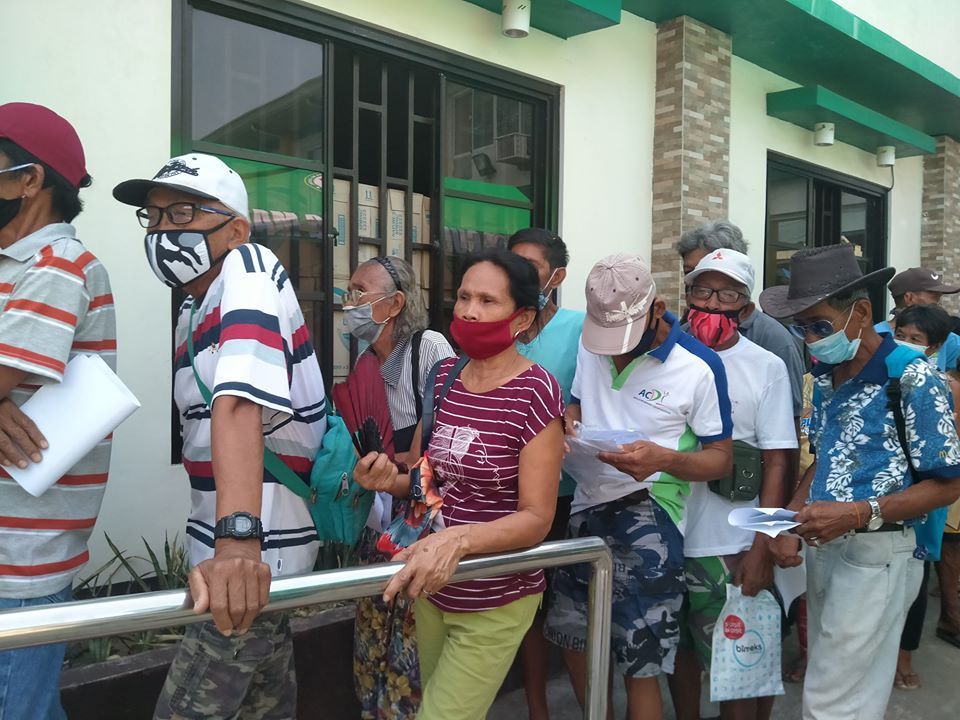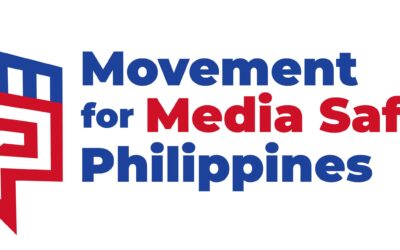MANILA — In the first few weeks of the hard lockdown due to COVID-19 in 2020, local community media outfit Radyo Natin Guimba reported on the long queue of farmers waiting for aid outside the municipal office of Guimba, Nueva Ecija.
Some of the residents seen in the report held placards that read, “Nasaan ang ayuda?” and “Gutom na kami.”
The local radio station also aired a story about the municipal council’s supplemental budget for COVID-19 response amounting to P16 million.
Angered by the reports, local politicians filed cyber libel and violation of Republic Act 11469 — or the Bayanihan to Heal As One Act — particularly the provision on spreading false information. Radyo Natin Guimba journalists decried the charges as plain harassment.
Two of the cases have been dismissed due to lack of evidence but one of the charges, filed by the town mayor, remains pending.
The legal offensives on Radyo Natin Guimba are meant to suppress the sentiments of the people on the ground, sending a message to listeners and other local media outlets that calls for transparency are not welcome.
Like our colleagues from Radyo Natin Guimba, journalists from other community media outlets in different parts of the country also found themselves charged with lawsuits for reporting issues of the marginalized and oppressed sectors.
While the public is familiar with the harassment suits against Rappler, harassment cases — sometimes referred to as Strategic Lawsuits Against Public Participation or SLAPP — against grassroots journalists are not widely known.
Take the case of Northern Dispatch, an alternative news site based in Baguio City. After publishing reports about Police BGen. R’win Pagkalinawan’s threat that he would order snipers to shoot “communist organizers,” Northern Dispatch editor-in-chief Kimberlie Ngabit-Quitasol and reporter Khim Abalos were slapped with a libel and cyber libel suits.
Pagkalinawan was regional director of the Cordillera police at the time.
Two local courts earlier dismissed the charges filed by Pagkalinawan; the first one citing lack of jurisdiction, and the second one noting lack of preliminary investigation. Neither Quitasol nor Abalos were ever summoned by the prosecutor’s office for them to answer the allegations.
Instead of dismissing the charges, Benguet Provincial Prosecutor Andres Gundayao filed in October 2020 a cyberlibel case against Quitasol and Abalos, using the same affidavits in the previously junked charges.
The case is still undergoing trial as of this writing.
According to the database of the National Union of Journalists of the Philippines, majority of the 37 cases of libel and cyberlibel charges against Filipino journalists since June 30, 2016 were filed by politicians and state agents.
Charges could also send journalists in jail.
While covering the May 1, 2020 protest in Iloilo City, seven journalists belonging to the alternative media outfits were arrested along with protesters, and charged with violation of Batas Pambansa 880 and Republic Act 11332 — the Mandatory Reporting of Notifiable Diseases and Health Events of Public Health Concern Act — among others.
They were released on bail the following day. Three of the charges have so far been dismissed, with only one case pending left before the prosecutor’s office.
This is not the first time under the Duterte administration that journalists were arrested while covering a protest. On July 30, 2018, five journalists from Altermidya were nabbed by the police while they were taking videos of the violent dispersal at a NutriAsia workers’ strike in Bulacan.
The five journalists were released two days later, on Aug. 1, 2018, following the dismissal of a physical injuries complaints against them due to lack of probable cause.
The other charges — illegal assembly (BP 880) and alarm and scandal — were eventually junked as well.
The most evil, however, are fabricated charges of illegal possession of firearms and explosives. Three colleagues — Anne Krueger, Frenchie Mae Cumpio and Lady Ann Salem — in separate incidents, suffered similar fates.
Using questionable search warrants, police raided their offices or homes, planted evidence and arrested them.
Krueger, of Bacolod-based Paghimutad, was able to document the search by police operatives on October 31, 2019. She was allowed to post bail on November 12. The charges against her and other hu man rights defenders have yet to be dismissed.
man rights defenders have yet to be dismissed.
Cumpio of Eastern Vista, meanwhile, was arrested during in one of simultaneous police raids in Tacloban City on Feb. 7, 2020. She remains in detention until now.
Manila Today’s Salem, one of the seven arrested during the Dec. 10, 2020 police raids in Metro Manila, was freed on March 5, 2021, after a local judge rendered the search warrant invalid, and thus the evidence police said they obtained inadmissible.
All three women journalists and their media outfits had been covering human rights abuses in their areas. Paghimutad was founded after the series of killings in Negros islands. Eastern Vista exposed the impacts of military operations in farming communities while Manila Today reported about the violent demolitions and the drug-related killings in the capital.
Their media outfits too, along with other members of Altermidya – People’s Media Network, were labeled as communist fronts by the National Task Force to End the Local Communist Armed Conflict. And red-tagging in this country almost always precedes, and seems to justify, graver forms of violation of human rights.
The practice of filing common crimes against journalists intends to intimidate not only those facing charges but also their colleagues and the public in general.
The lawsuits, and even the mere threat of filing such, contribute to a chilling effect in a a media sector that the Center for Media Freedom and Responsibility noted in May exists in a culture of fear.
It is not enough to combat these lawfare suits in court. It is incumbent upon Filipino journalists to face these attacks collectively by continuously asserting press freedom.
It has become even more urgent to link with human rights defenders here and abroad in defending democracy and justice. — Ronalyn V. Olea, NUJP secretary-general




